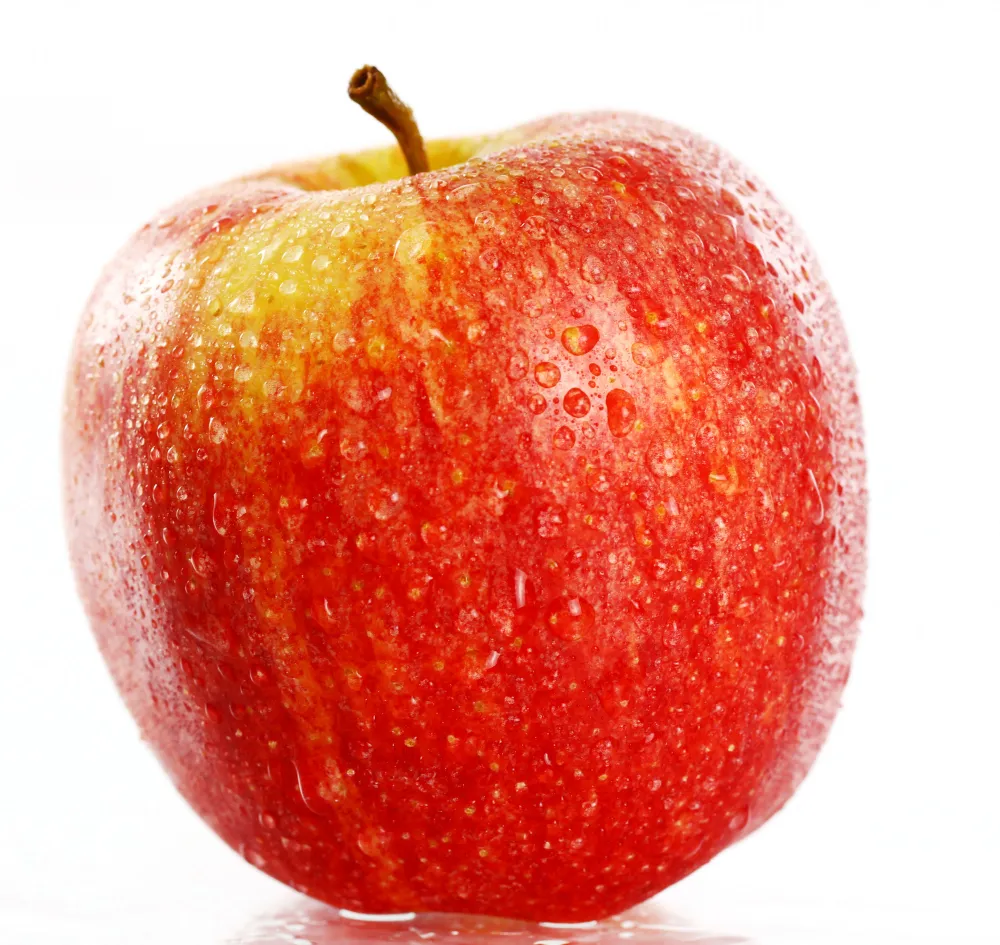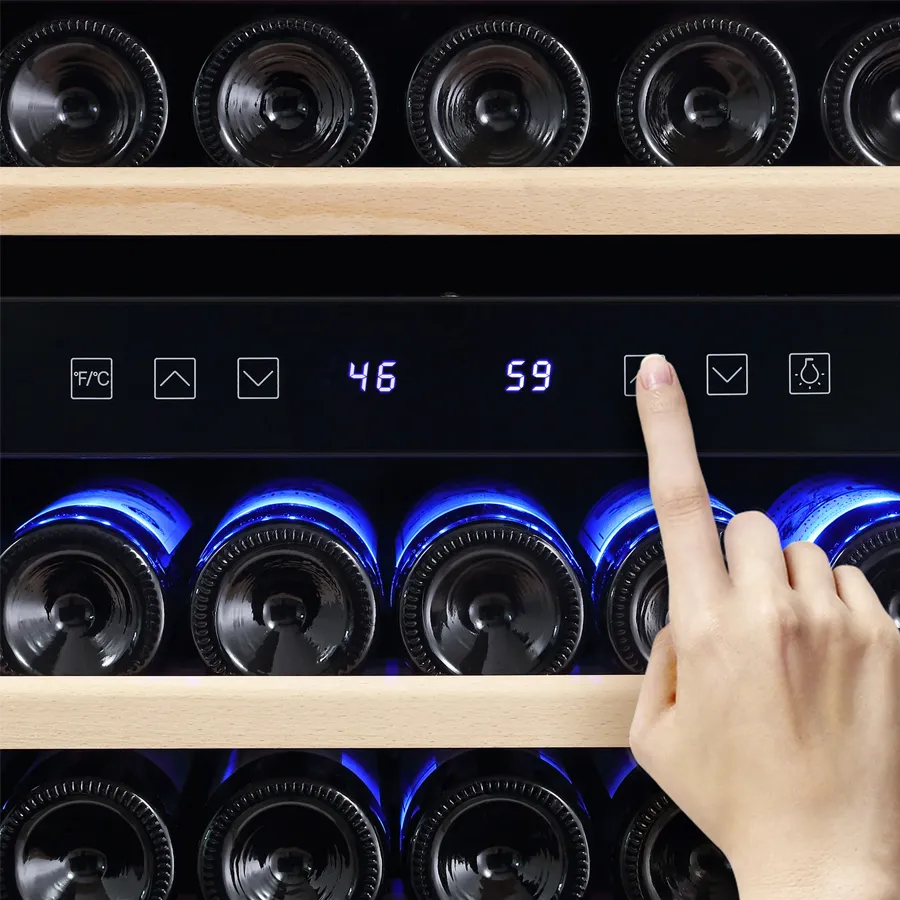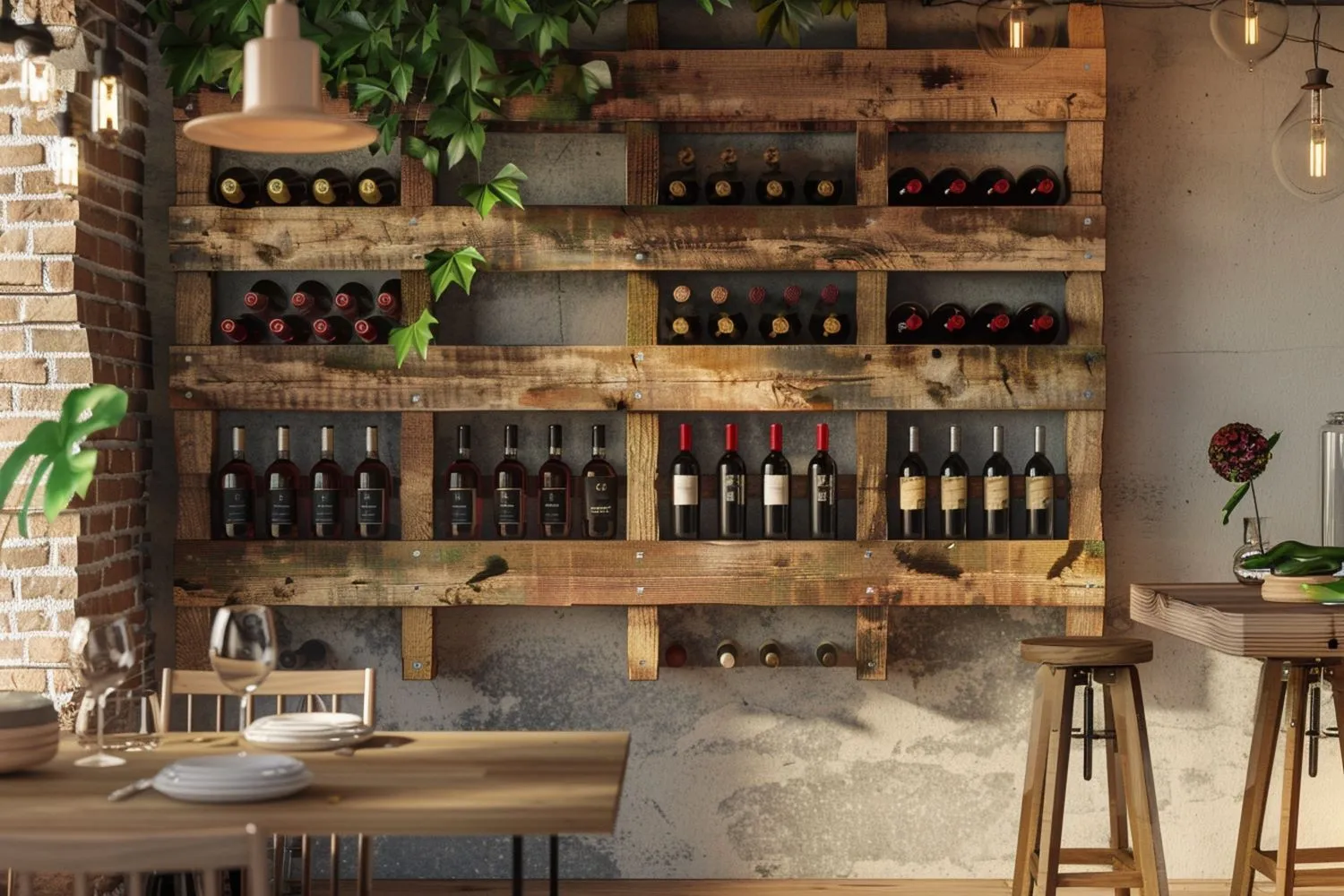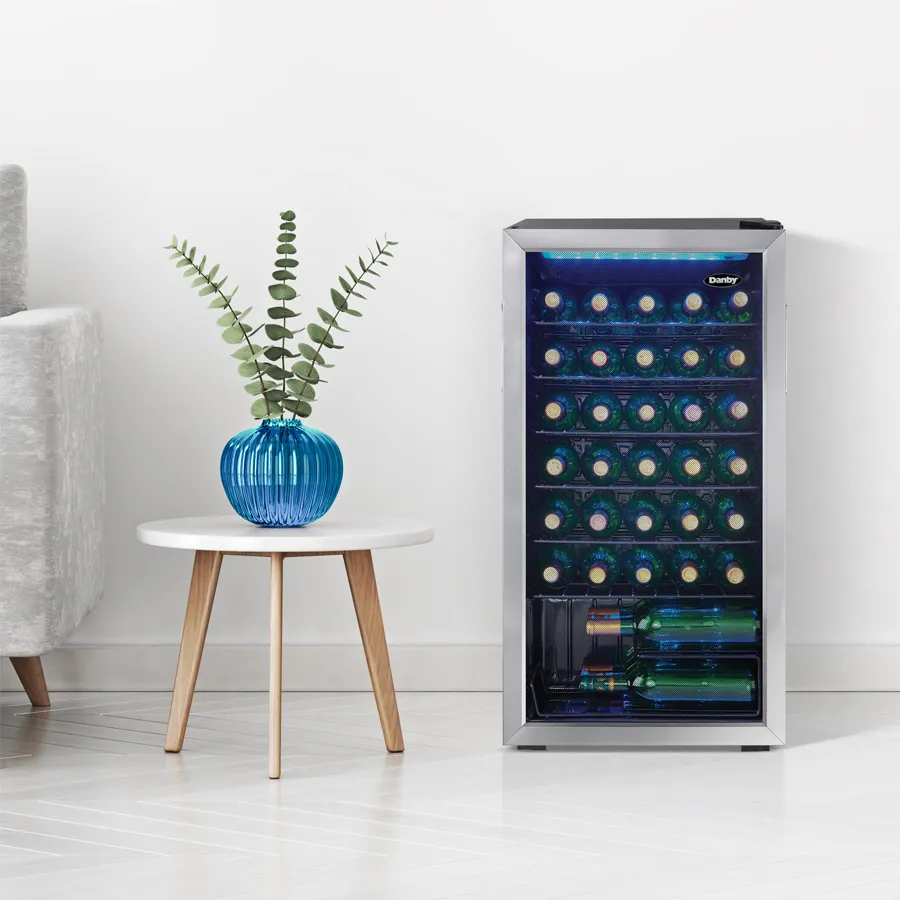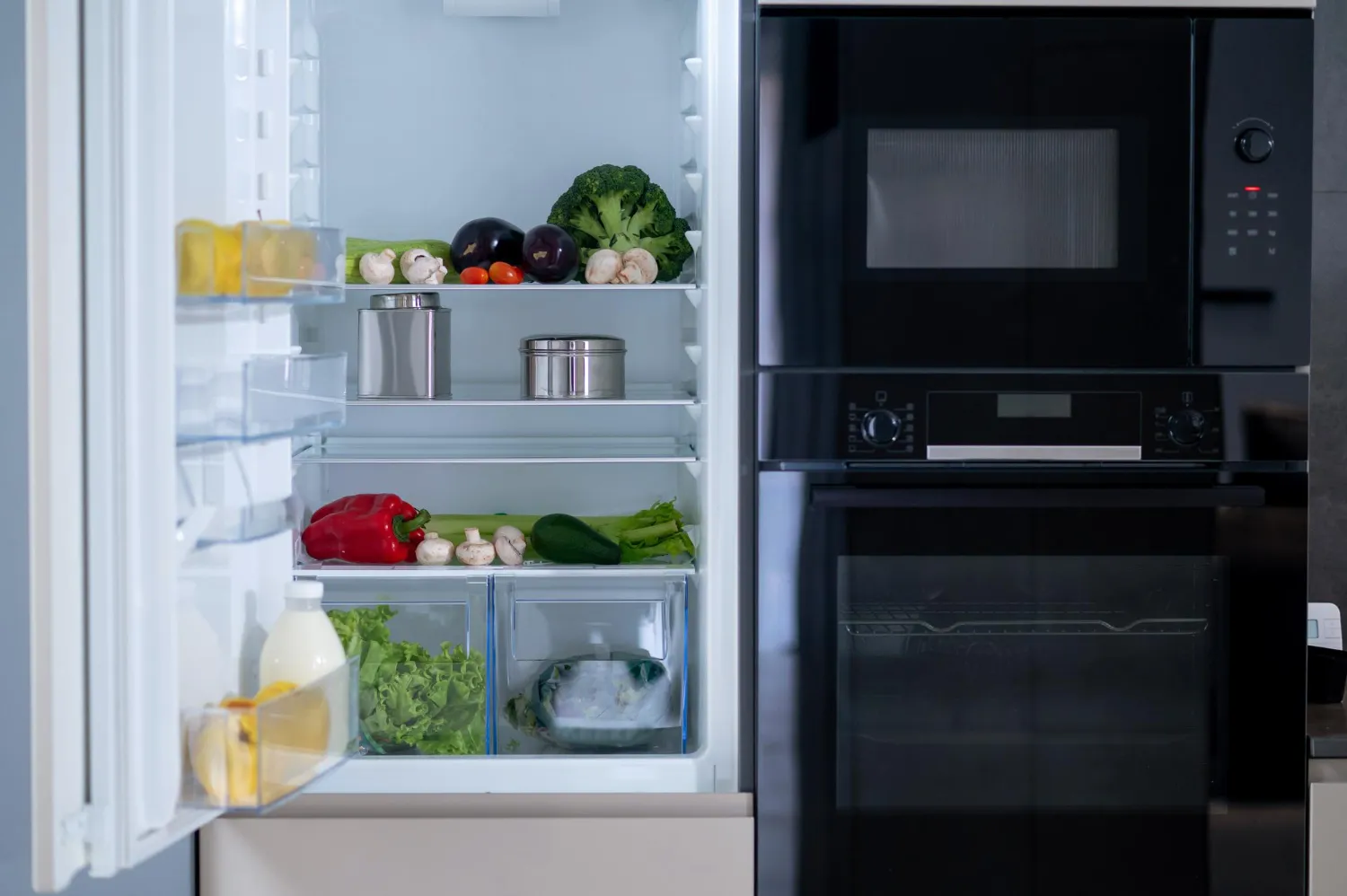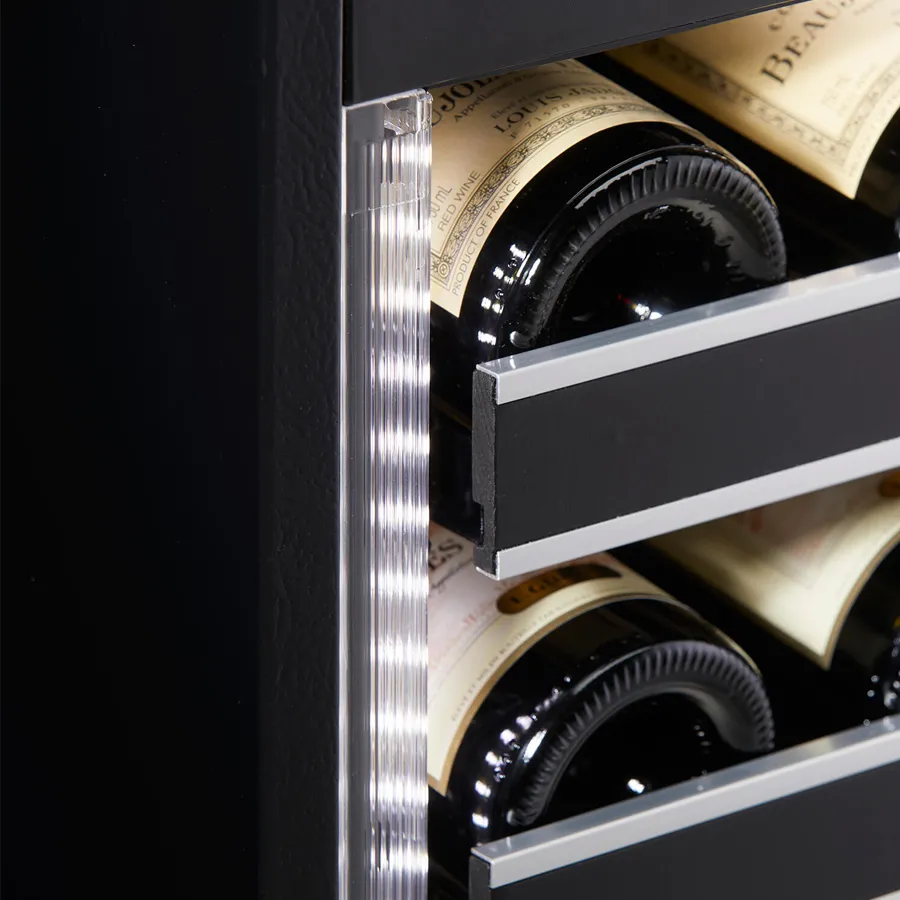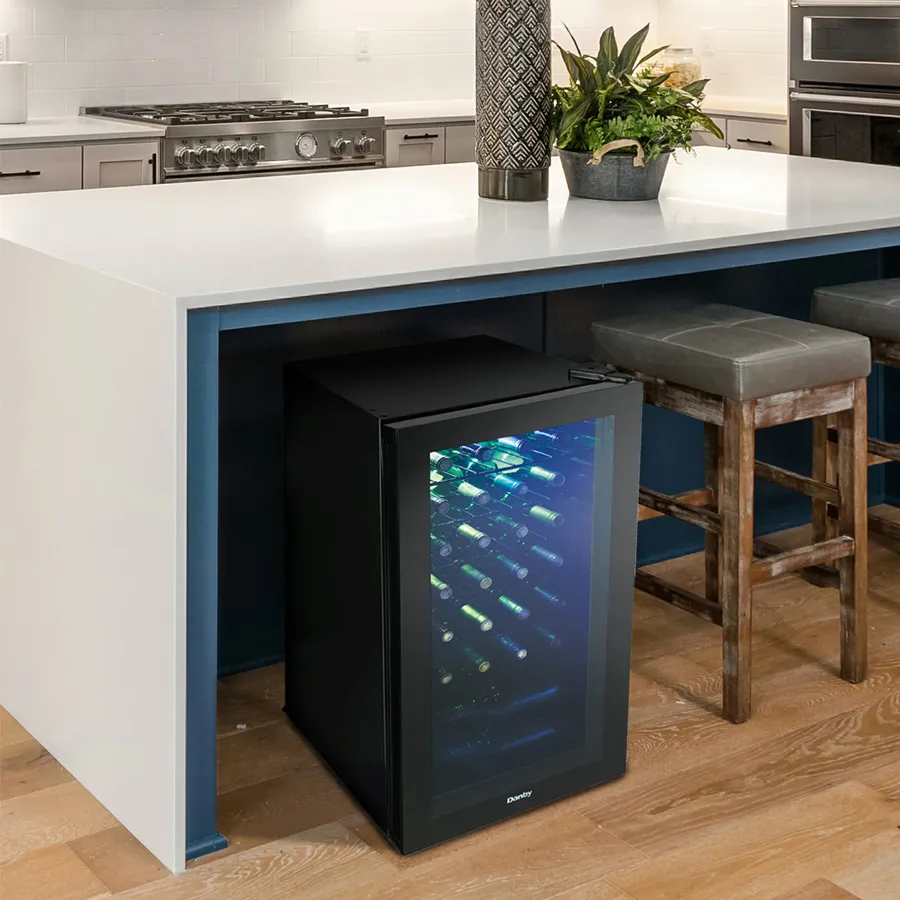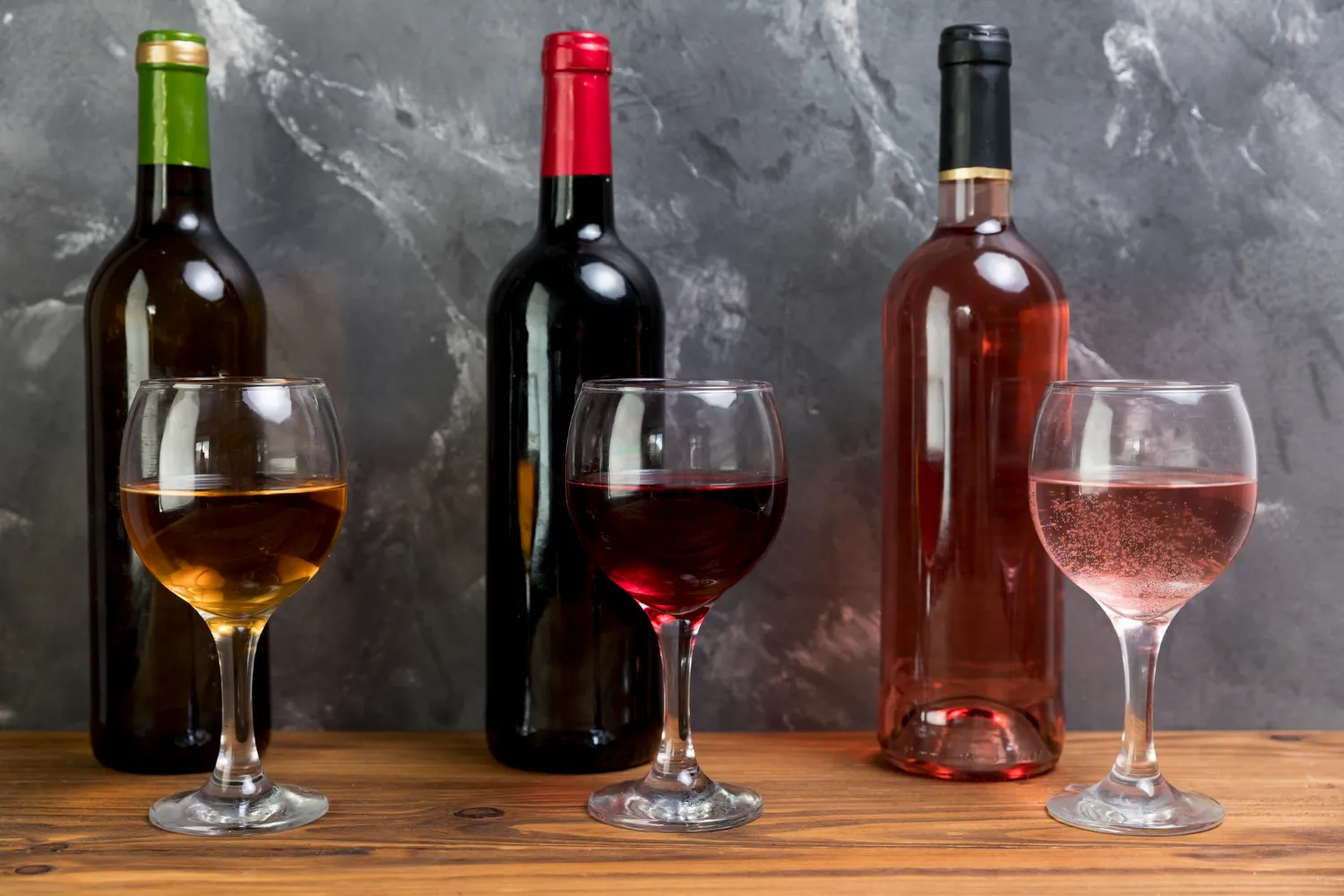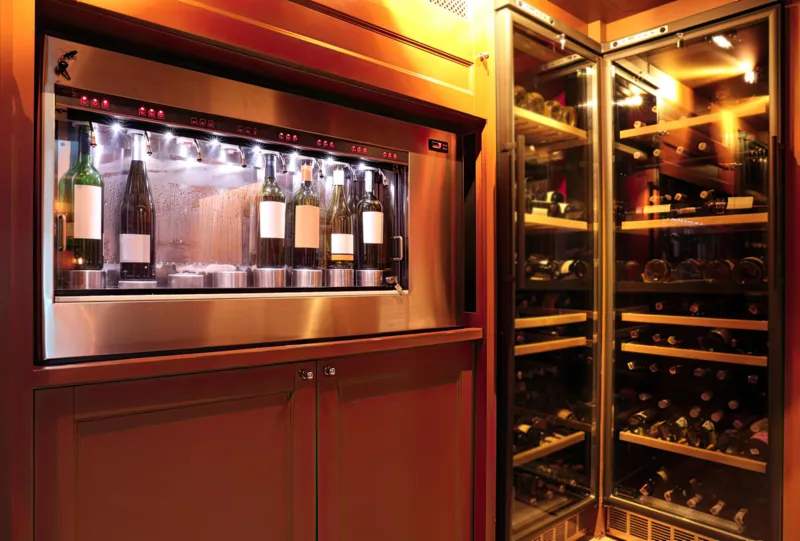Cold weather poses unique challenges to wine storage, so it’s vital to keep a few things in mind to keep your collection in pristine condition. You need a dependable cooling system, high-quality glass and doors, and adequate insulation to keep your wine safe from low temperatures. Even in the dead of winter, you may age your wine collection to perfection by paying close attention to these details while you plan and build a wine cellar.
=> Related Article: Where Are The Good Places For Your Wine Cellar?
How To Protect Your Wine in Cold Climates?
The key to protecting your wine collection in cold climates is effectively managing temperature and humidity levels. Low ambient control options are beneficial when the condenser will be exposed to outdoor temperatures of 40°F or lower. Utilizing a wine cooling unit that is equipped to handle low ambient temperatures is crucial for ensuring that your wine is stored in optimal conditions.
| Temperature | 55 to 58°F |
| Humidity | 50 to 70% |
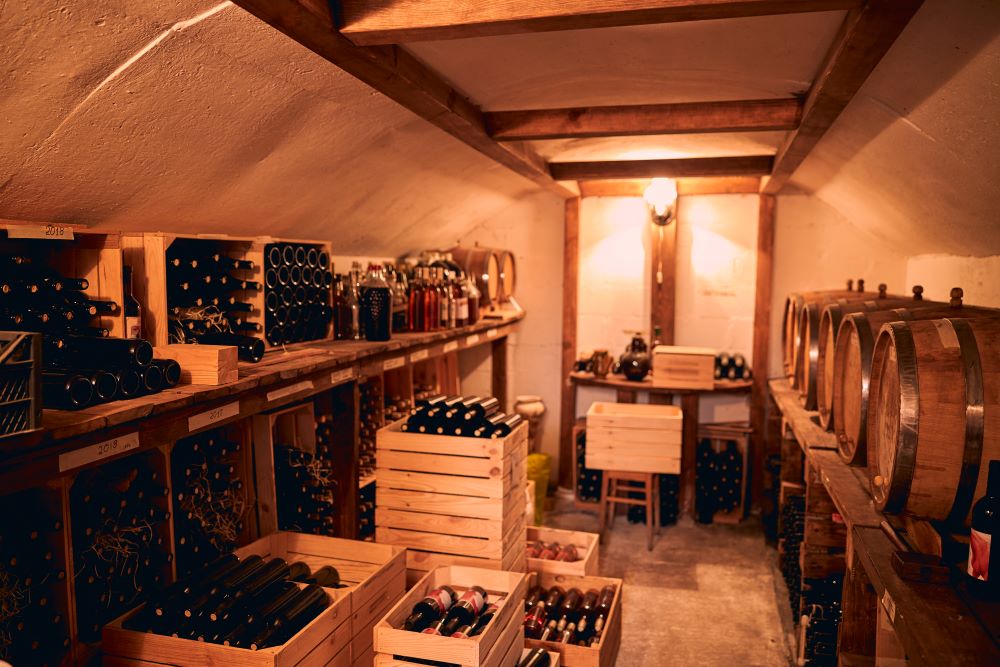
Maintaining a controlled environment of temperature and humidity in your wine celler is essential for the preservation of wine collections in colder regions.
Insulation and Materials: A Critical Aspect
Importance Installing adequate insulation in your wine storage space is crucial in regulating temperature fluctuations caused by cold weather. Proper insulation helps in maintaining a consistent temperature of 55 to 58°F (12 to 14°C) and relative humidity level of 50 to 70 percent, which are ideal conditions for wine aging. Additionally, using high-quality materials for walls, ceiling, and flooring will further enhance the insulation properties of the space, ensuring that the cold air from outside does not seep in.

Choose wine cellar doors and windows with excellent insulation. Double-paned insulated glass reduces heat loss.
For the doors and glass of your wine storage space, it is imperative to choose options that provide excellent insulation. Opt for double-paned and insulated glass to minimize heat exchange with the external environment. It is recommended to use commercial and exterior-grade doors with a tightly sealed threshold to prevent cold air infiltration. These measures will help in maintaining a stable temperature and humidity level within the storage area, safeguarding your wine collection from the harsh effects of cold weather.
Using the Right Wine Cooling Unit
Wine cooling units are necessary for maintaining the ideal storage conditions for your wine collection. It is crucial to choose a unit that can maintain a consistent temperature of 55 to 58°F and a relative humidity level of 50 to 70 percent. When choosing a wine cooling unit, consider factors such as the size of your wine cellar, the insulation of the space, and the exposure to low ambient temperatures. The ability to maintain the ideal temperature and humidity levels in a wine cellar, particularly in cold climates, is paramount for preserving the quality and flavor of your wine collection. Investing in a high-quality wine cooling unit and implementing proper insulation and sealing techniques will ensure that your wine is protected from the harsh elements.
=> Related Article: Passive Wine Cellars: Pros and Cons
Routine Checks for the Integrity of Your Wine Cellar
After investing time and resources in creating your ideal wine storage space, it is crucial to conduct routine checks to ensure its integrity. An inspection of the insulation, doors, and windows should be done regularly to identify any potential areas of concern. Any gaps or leaks in the insulation can lead to temperature fluctuations, which can harm your precious wine collection. Additionally, keep an eye on the seals around doors and windows to prevent any cold air from seeping in.
Preventing Vibrations and Other External Factors
Strategic positioning of your wine collection also involves minimizing vibrations and external factors that can impact the quality of your wines. Install anti-vibration pads under wine coolers and shelves to absorb any movement that may affect the sediment in your bottles. Additionally, avoid placing the cellar near high-traffic areas or mechanical equipment to reduce noise and vibrations.
- Strategic positioning of shelves and bottles within the cellar can significantly impact the aging process of your wines. For example, keep your wine racks away from exterior walls and doors to minimize exposure to outside temperatures. Additionally, place bottles on stable shelves to prevent them from shifting due to temperature changes, which can disturb sediment and affect the aging process.
- Temperature monitoring systems provide real-time data to ensure the optimal storage conditions for your collection.
- Recognizing potential temperature fluctuations and addressing them promptly is important for preserving the quality of your wines.

Anti-vibration mats under wine coolers and shelving absorb movement that could cause bottle sediment.
Summing Up
At this time, if you live in an area where winters are particularly harsh, you’ll need to build and maintain your wine storage space with extreme caution to ensure the safety of your wine collection. To keep the weather out and the humidity and temperature just right, you need insulation, good doors, and windows. If you want your wine to age correctly, even in the dead of winter, you need a cooling system that can cope with low ambient temperatures. Following these guidelines will ensure that your wine collection remains in pristine condition for many years to come.





